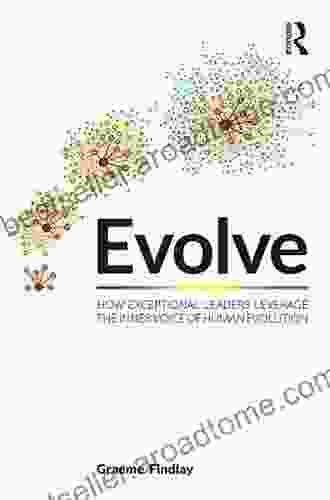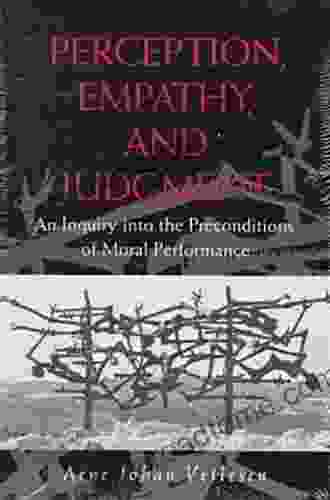Perception, Empathy, and Judgment: Unlocking the Power of Social Cognition

Social cognition is a branch of psychology that explores the mental processes involved in understanding and interacting with others. It encompasses a wide range of topics, including perception, empathy, and judgment. These processes play a crucial role in our social lives, enabling us to communicate effectively, form relationships, and navigate complex social situations.
In this article, we will delve into the latest research and practical applications of social cognition. We will explore how our perceptions of others shape our interactions, how empathy allows us to understand and connect with others, and how our judgments affect our social behavior. By gaining a deeper understanding of these processes, we can enhance our interpersonal skills, foster a more compassionate and understanding society, and unlock the full potential of our social cognition.
Perception is the process of taking in information from our environment and interpreting it. Our perceptions are not simply objective representations of reality, but rather subjective interpretations that are influenced by our beliefs, expectations, and past experiences.
5 out of 5
| Language | : | English |
| File size | : | 2177 KB |
| Text-to-Speech | : | Enabled |
| Screen Reader | : | Supported |
| Enhanced typesetting | : | Enabled |
| Word Wise | : | Enabled |
| Print length | : | 410 pages |
Social perception is the process of perceiving and interpreting other people. We form impressions of others based on their physical appearance, behavior, and communication. These impressions can have a significant impact on our thoughts, feelings, and behaviors towards others.
One of the most important aspects of social perception is accuracy. Accurate perceptions of others allow us to interact with them effectively and build meaningful relationships. However, our perceptions are often biased and inaccurate. These biases can lead to misunderstandings, conflict, and discrimination.
There are a number of factors that can contribute to perceptual biases, including:
- Stereotypes: Stereotypes are overgeneralized beliefs about a particular group of people. They can lead us to perceive members of that group in a biased way.
- Prejudice: Prejudice is a negative attitude towards a particular group of people. It can lead us to perceive members of that group in a negative light.
- Confirmation bias: Confirmation bias is the tendency to seek out information that confirms our existing beliefs. This can lead us to ignore information that contradicts our beliefs.
- Self-fulfilling prophecy: Self-fulfilling prophecy is the phenomenon where our expectations of others lead them to behave in a way that confirms our expectations.
We can reduce the impact of perceptual biases by being aware of them and by actively seeking out information that contradicts our beliefs. We can also challenge our assumptions about others and try to see them from their perspective.
Empathy is the ability to understand and share the feelings of another person. It is a complex process that involves both cognitive and emotional components.
The cognitive component of empathy involves understanding the other person's perspective and recognizing their thoughts and feelings. The emotional component of empathy involves sharing the other person's feelings and experiencing their emotions as if they were our own.
Empathy is essential for building strong relationships and fostering a compassionate and understanding society. It allows us to connect with others on a deep level and to provide support and comfort when they are in need.
There are a number of things that we can do to increase our empathy for others. These include:
- Listening attentively: When someone is talking to us, really listen to what they are saying and try to understand their perspective.
- Putting ourselves in their shoes: Try to imagine yourself in the other person's situation and experience their feelings as if they were your own.
- Being open-minded: Be willing to consider different perspectives and to challenge your own assumptions.
- Practicing compassion: Compassion is the desire to alleviate the suffering of others. It is an important part of empathy and it can help us to connect with others on a deeper level.
Judgment is the process of making decisions about others. We make judgments about others' personality, character, and behavior on a daily basis.
Our judgments of others can have a significant impact on our interactions with them. Positive judgments can lead to trust, cooperation, and friendship. Negative judgments can lead to distrust, conflict, and avoidance.
It is important to be aware of our judgments of others and to make sure that they are fair and accurate. We should not judge others based on stereotypes or prejudices. Instead, we should try to judge others based on their individual merits.
There are a number of factors that can influence our judgments of others, including:
- Our own beliefs and values: Our own beliefs and values can influence our judgments of others. For example, if we believe that honesty is important, we may be more likely to judge someone who we perceive to be dishonest.
- Our past experiences: Our past experiences can also influence our judgments of others. For example, if we have had negative experiences with a particular group of people, we may be more likely to judge others who belong to that group in a negative way.
- The context in which we make our judgments: The context in which we make our judgments can also influence our judgments. For example, if we are in a hurry or feeling stressed, we may be more likely to make negative judgments of others.
We can make more fair and accurate judgments of others by being aware of the factors that can influence our judgments. We should also try to put ourselves in the other person's shoes and consider their perspective before making a judgment.
Perception, empathy, and judgment are essential components of social cognition. They play a crucial role in our interactions with others and in our overall social experience. By understanding these processes and applying them in our daily lives, we can improve our communication skills, build stronger relationships, and create a more compassionate and understanding society.
5 out of 5
| Language | : | English |
| File size | : | 2177 KB |
| Text-to-Speech | : | Enabled |
| Screen Reader | : | Supported |
| Enhanced typesetting | : | Enabled |
| Word Wise | : | Enabled |
| Print length | : | 410 pages |
Do you want to contribute by writing guest posts on this blog?
Please contact us and send us a resume of previous articles that you have written.
 Book
Book Novel
Novel Page
Page Chapter
Chapter Text
Text Story
Story Genre
Genre Reader
Reader Library
Library Paperback
Paperback E-book
E-book Magazine
Magazine Newspaper
Newspaper Paragraph
Paragraph Sentence
Sentence Bookmark
Bookmark Shelf
Shelf Glossary
Glossary Bibliography
Bibliography Foreword
Foreword Preface
Preface Synopsis
Synopsis Annotation
Annotation Footnote
Footnote Manuscript
Manuscript Scroll
Scroll Codex
Codex Tome
Tome Bestseller
Bestseller Classics
Classics Library card
Library card Narrative
Narrative Biography
Biography Autobiography
Autobiography Memoir
Memoir Reference
Reference Encyclopedia
Encyclopedia Anne Davison
Anne Davison Anne L Watson
Anne L Watson Bear Bibeault
Bear Bibeault Christina Stone
Christina Stone Anne Campbell
Anne Campbell Peder Anker
Peder Anker Jonathan Chase
Jonathan Chase Opal Luna
Opal Luna Ariella Chezar
Ariella Chezar Arnold L Sweet
Arnold L Sweet Armani Talks
Armani Talks Asif Syed
Asif Syed Asif Zaidi
Asif Zaidi Susan Ronald
Susan Ronald David M Howard
David M Howard Anna White Hodges
Anna White Hodges Anna Badkhen
Anna Badkhen Antonio Matteo Bruscella
Antonio Matteo Bruscella Artie Lange
Artie Lange Basia Sliwinska
Basia Sliwinska
Light bulbAdvertise smarter! Our strategic ad space ensures maximum exposure. Reserve your spot today!

 Lord ByronUnlock Your Inner Evolution: How Exceptional Leaders Leverage The Inner Voice...
Lord ByronUnlock Your Inner Evolution: How Exceptional Leaders Leverage The Inner Voice... Allen ParkerFollow ·4.8k
Allen ParkerFollow ·4.8k Bruce SnyderFollow ·12.8k
Bruce SnyderFollow ·12.8k Morris CarterFollow ·9.2k
Morris CarterFollow ·9.2k Charlie ScottFollow ·12.4k
Charlie ScottFollow ·12.4k Dion ReedFollow ·10.5k
Dion ReedFollow ·10.5k Travis FosterFollow ·2.1k
Travis FosterFollow ·2.1k Jamie BellFollow ·10.6k
Jamie BellFollow ·10.6k Allen GinsbergFollow ·13.6k
Allen GinsbergFollow ·13.6k

 Jeremy Cook
Jeremy CookDrawing and Illustrations of the 18th Century: A Journey...
Step into the...

 Easton Powell
Easton PowellPhysician Experience With Obstructive Sleep Apnea: The...
Obstructive sleep apnea (OSA) is a common...

 Cruz Simmons
Cruz SimmonsUnlock Your Inner Healer: The Transformative Power of...
Are you ready to embark on a profound healing...

 Paulo Coelho
Paulo CoelhoTransmission Awakening In Time Of Transition Vol. 1: A...
Transmission Awakening...
5 out of 5
| Language | : | English |
| File size | : | 2177 KB |
| Text-to-Speech | : | Enabled |
| Screen Reader | : | Supported |
| Enhanced typesetting | : | Enabled |
| Word Wise | : | Enabled |
| Print length | : | 410 pages |














